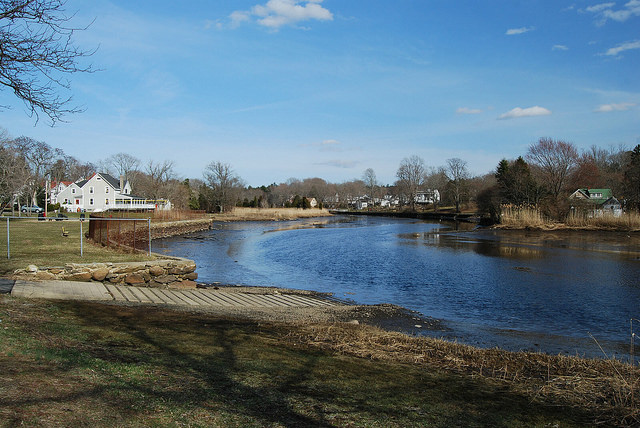Improving Waters with the Clean Water Act Section 303(d)
When lakes or rivers have more contaminants than the levels states deem acceptable, the water body is considered impaired. These levels, or criteria, are based on a water body’s designated use, such as recreation or drinking water, under state water quality standards.
The federal Clean Water Act requires states to create a list of impaired water bodies and develop plans to improve their water quality. Scientists analyze impaired water bodies to determine the daily amount, or load, of a pollutant they can handle without significantly harming the water’s designated use. States then identify major sources of the contaminant within a watershed and specify where and when reductions must be made so the water body once again meets its water quality requirements. This proposed “Total Maximum Daily Load” (TMDL) plan is then sent to the EPA for approval.

NEIWPCC’s Role
Developing and implementing a TMDL can be complex. NEIWPCC supports its member states as they develop these challenging and important plans. NEIWPCC has contributed to TMDL work on many water bodies in New England and New York State, including a mercury TMDL for the Northeast, and a nitrogen TMDL for the Long Island Sound. Additionally, NEIWPCC works on nonpoint source pollution reductions across the region which tackles a major portion of pollution loading addressed by TMDLs.
NEIWPCC convenes a TMDL workgroup to connect professionals working on TMDLs across the Northeast and EPA Regions 1 and 2. Workgroup meetings provide a forum for staff to share knowledge, develop solutions, and anticipate and plan for future challenges and potential conflicts. NEIWPCC also monitors EPA’s TMDL guidance and writes comment letters, if necessary, on behalf of our member states.
Additionally, NEIWPCC hosts national informational webinars to train state, federal, and tribal TMDL program staff, as well as other non-governmental stakeholders when appropriate. NEIWPCC is also working with the EPA to gather and disseminate success stories related to TMDLs and the 303(d) program more broadly. Part of this project includes the podcast, The Clean Water Pod, which explores challenges and successes of the 303(d) program in the United States.
For more information on NEIWPCC’s work with TMDLs contact Beth Malcolm.
